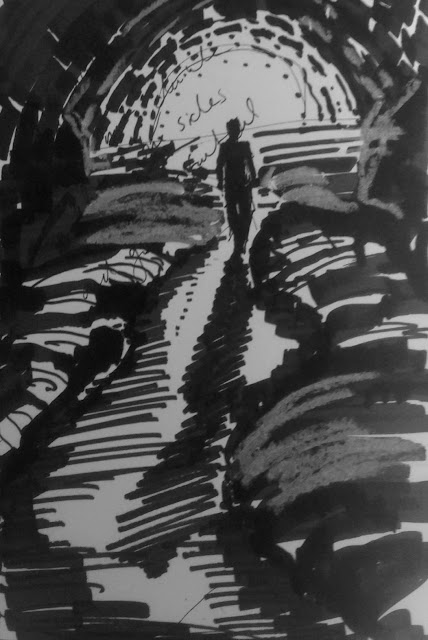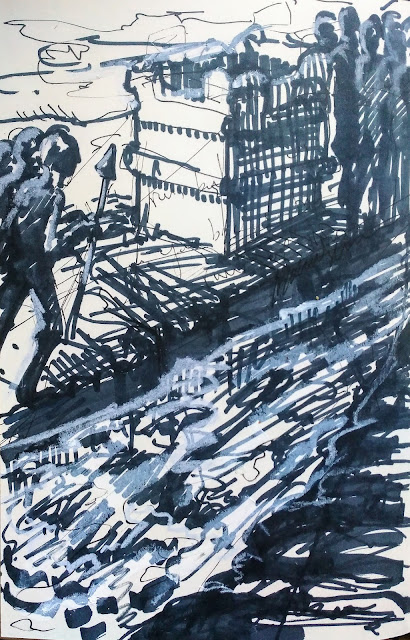To walk a path and not deviate.
Watch the sides
watch where your feet fall
And be on guard
[For full chapter, click here
After "many days", Joshua "old, coming into days," calls the people together in a farewell speech that echoes, in many ways, Moses' final address to the people. As in the desert, the "elders" the "judges" and heads come together. Here, the Shema prayer command to "love God with all your heard and all your soul" is recreated for people that experienced not the Exodus, but the coming into the Land. Now the people will know "with all their hearts and all their souls" that God has fulfilled his promise. Everything is embodied in space. "I am going the way of all flesh," Joshua says, and proceeds to speak of following a path, from which Israel must not deviate. Th relationship to God can be "seen" (r'e')--one of the leitwords of the chapter.
The other keyword is "to guard." Again and again, thhe duty is defined by the negative, what must not be done. "do not deviate" "do not enter" "do not worship and bow to them." The path outwards is the channel left between the warnings: "for to your own God you will stick". Hovering in the background is the threat of disembodiment, of becoming "lost from upon the earth" that has come to define everything]




